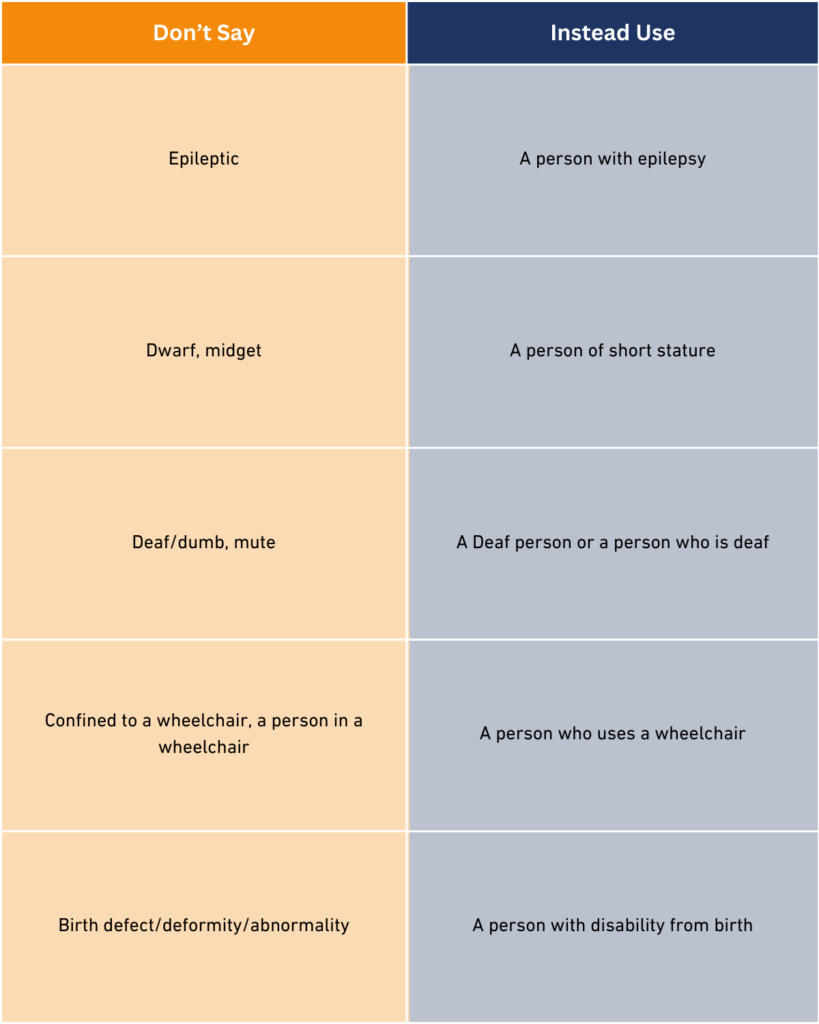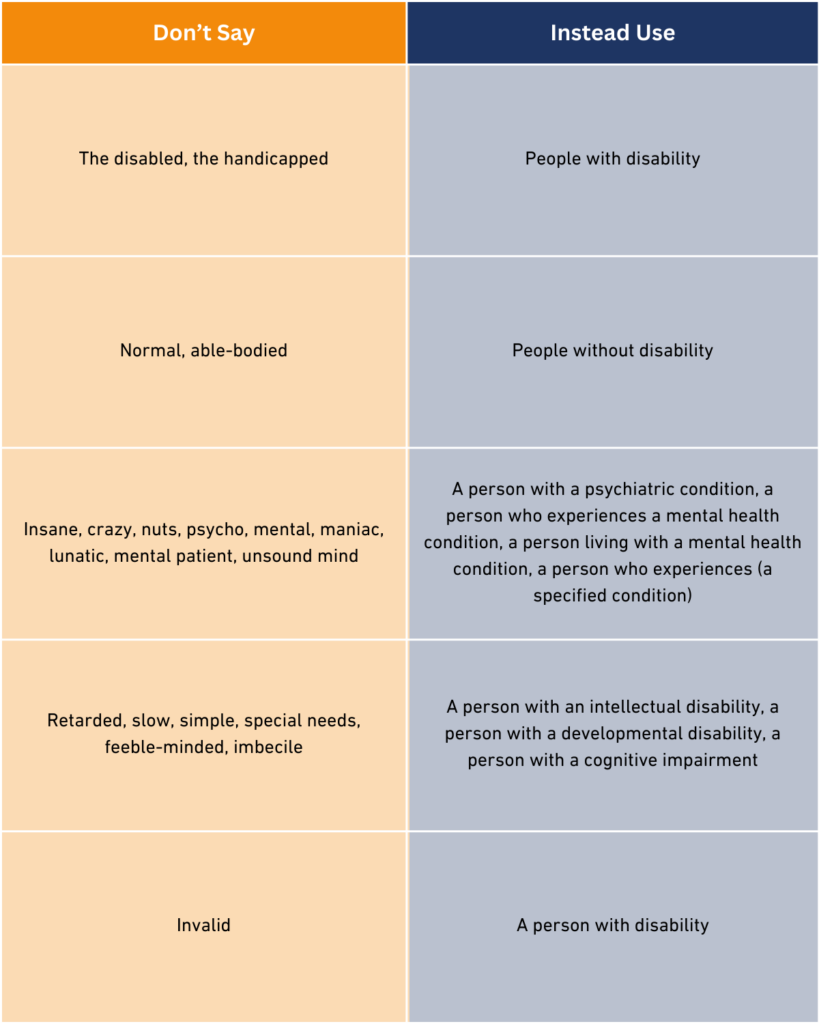Following on from our Disability Language Guide posted last month, we’d like to continue our education on using the right Disability Language in your organisation.
In the workplace, we often use language different to that outside the office. For example, when it comes to identifying your role within the organisation we tend to cite activity first then outcome or team second such as Brand Development Manager. But when it comes to discussing language within the disability community, these rules need to be adjusted, and additional perspectives considered.
In Australia, it is generally regarded as best practice to use Person-First Language. Person-First Language emphasises the individual first, rather than their impairment. This approach prioritises the person and acknowledges their identity beyond their disability. Examples include phrases like “a person with a lived experience of disability,” “a person who experiences vision impairment,” or “a person living with disability.” When referring to someone who does not have a disability, it is preferable to say “a person/people without disability” rather than “normal” or “able-bodied.”
It is crucial to note that even when using Person-First Language, references to a person’s impairment should only be made when relevant and appropriate.
However, some communities within the disability sector prefer Identity-First Language. For instance, many individuals who are Autistic or neurodiverse opt for identity-first language as it is central to their identity and shapes how they interact with the world. Similarly, within the Deaf community, the term “Deaf” with a capital “D” is a conscious choice. Depending on their cultural identity, a person might identify as either “a person who is deaf” or “a Deaf person.”
It’s also important to avoid language that portrays people with disabilities as inherently inspirational merely due to their disabilities. This is a theme you may have noticed occurring during the Olympic coverage. Disability should not be viewed as a negative attribute that must be “overcome” to contribute meaningfully to society. Instead, disability is a natural and normal part of the human experience.
Language is crucial. and everyone has a right to feel comfortable at work. If you are unsure about your phrases or comments, speak directly with the person is may effect and ask them how they would like to be addressed. You can also reach out to our Building Employer Confidence team for guidance.




